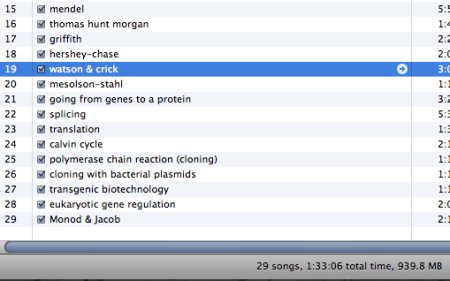 A Christmas Tradition…
A Christmas Tradition…
It’s a tradition as deeply ingrained as overdosing on eggnog or decorating the tree: college students home for the holidays getting into fights with their parents about school. There are uncountably many different ways for these fights to be kindled, but once raging they fall into one of two predictable paths: the always popular “you don’t understand how hard I study” theme and the well-worn classic “I know everything and you’re hopelessly naive.”
This post, in the spirit of the season, teaches you how to avoid such brawls. Below are three simple pieces of advice. Give them a read now and the vacation days ahead might just remain merry.





